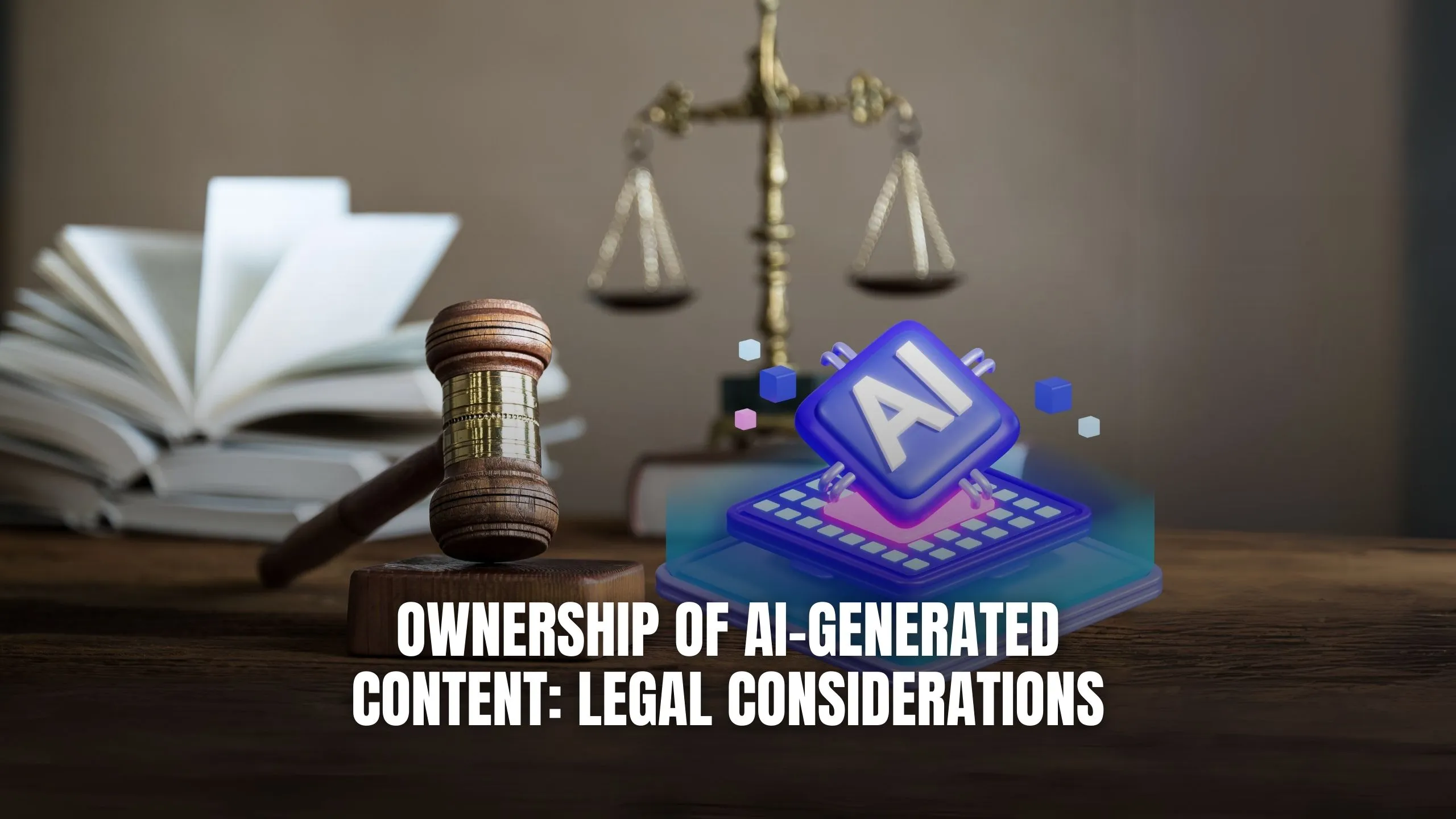Ownership of AI-Generated Content: Legal Considerations
- Expense Management Software Credit Cards Investing Business Solutions


Ownership of AI-Generated Content: Legal Considerations
In the rapidly evolving landscape of artificial intelligence (AI), the question of ownership concerning content generated by AI algorithms has become a pressing legal concern. As AI technologies advance, the lines blur between human and machine creativity, raising significant implications for intellectual property rights and legal responsibilities. This article delves into the intricate legal considerations surrounding the ownership of AI-generated content, exploring key facets and providing insights into navigating this complex terrain.
1. Understanding AI-Generated Content
AI-generated content refers to creative works, including text, images, music, and more, produced by algorithms without direct human intervention. These algorithms analyze vast datasets, learn patterns, and generate content autonomously, mimicking human creativity to varying degrees. While AI-generated content holds immense potential for innovation and efficiency, it also introduces novel legal challenges, particularly regarding copyright and intellectual property ownership.
2. Copyright and Intellectual Property Rights
In traditional copyright law, the creator of a work holds automatic ownership and exclusive rights over its use and distribution. However, determining ownership becomes convoluted when AI generates content independently. In many jurisdictions, copyright laws attribute authorship to human creators, raising questions about the legal status of AI-generated works. Without clear legislative frameworks, disputes over ownership rights can arise, complicating licensing agreements, commercial use, and distribution channels.
3. Legal Precedents and Challenges
The absence of specific laws addressing AI-generated content has led to ambiguity and uncertainty in legal proceedings. Several high-profile cases, such as the “Monkey Selfie” controversy, have highlighted the complexities of assigning ownership when AI creates works autonomously. Courts grapple with reconciling traditional copyright principles with emerging technologies, underscoring the need for legislative updates and judicial interpretation to establish clearer guidelines.
4. Contractual Agreements and Licensing
To mitigate legal risks associated with AI-generated content, contractual agreements and licensing mechanisms play a crucial role. Parties involved in AI projects must draft comprehensive agreements outlining ownership rights, usage permissions, and liability clauses. By clearly delineating responsibilities and expectations, contractual frameworks provide a semblance of certainty in navigating the legal landscape surrounding AI-generated works.
5. Ethical Considerations and Future Implications
Beyond legal frameworks, ethical considerations loom large in the discourse surrounding AI-generated content. Questions of transparency, accountability, and fairness arise as AI algorithms increasingly contribute to creative endeavors. Policymakers, industry stakeholders, and legal experts must collaborate to address these ethical dilemmas and chart a path forward that balances innovation with societal values.
Relevant SaaS Products:
- Ironclad: Streamline contract management processes and ensure clarity in contractual agreements with Ironclad’s AI-powered contract lifecycle management platform.
- LegalZoom: Access legal expertise and draft comprehensive agreements with ease using LegalZoom’s online legal services, tailored to meet the needs of businesses navigating complex legal landscapes.
- DocuSign: Speed up contract signing with DocuSign, boosting efficiency and compliance in contract workflows through secure electronic signatures.
- LexisNexis: Stay updated on AI content laws with LexisNexis’s legal research, analytics, empowering informed decisions.
- Cogito: Leverage Cogito’s AI platform for extracting insights, identifying legal risks, and enhancing risk management effectively.
Conclusion
Navigating the legal landscape surrounding ownership of AI-generated content requires a nuanced understanding of copyright law, contractual agreements, and emerging ethical considerations. As AI technologies continue to evolve, policymakers, legal practitioners, and industry stakeholders must collaborate to develop robust legal frameworks that balance innovation with accountability. By proactively addressing these challenges, we can foster a legal environment conducive to responsible AI development and equitable distribution of creative works.
Empower Your Legal Strategy with Subscribed.fyi!
Struggling to navigate the legal complexities surrounding AI-generated content ownership? Subscribed.fyi offers exclusive deals on essential SaaS tools, including contract management platforms and legal research solutions. Sign up for free today to unlock savings on tools that streamline your legal processes and empower your business to confidently manage AI-generated content ownership here. Your legal strategy awaits!
Relevant Links:








